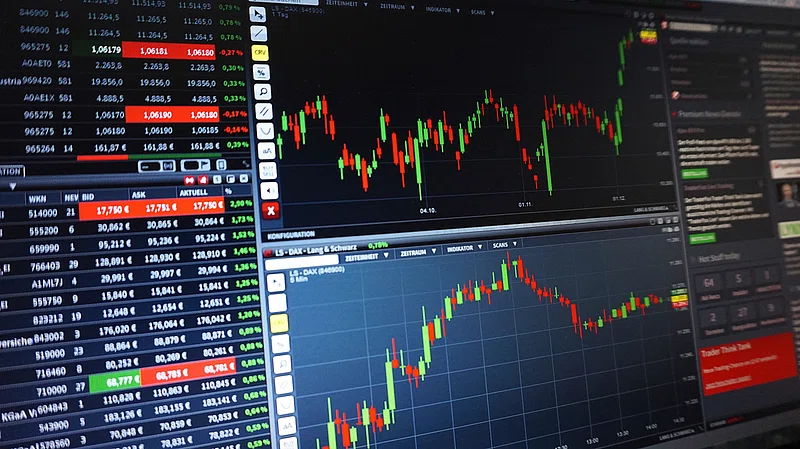After a successful holiday season, the S&P 500, which tracks the performance of the 500 largest companies listed on U.S. stock exchanges, closed at 5,868.55 on the first business day of 2025 (Thursday, January 2nd). One year prior, on the first business day of 2024 (Tuesday, January 2nd), the S&P 500 closed at 4,742.83—approximately 23.7% lower than this year. However, this one-year jump is just a piece of a broader trend: over the past half-decade, beginning with the rise of the COVID-19 pandemic, the index has shown an overall upswing. Since the first business day of 2020 (Thursday, January 2nd), the S&P 500 has risen by 2,610.70, or 80.2%.
As 2025 began, the market continued to hold increasing potential in the tech sector, but perhaps this time in the form of quantum computing rather than AI. The field of quantum computing, initially theorized decades ago, has recently adopted practical progress that has made it a feasible investment. At its core, quantum computing uses “qubits”, a quantum version of classical bits, the most rudimentary building block for digital communication, to process information. Qubits allow for parallel calculations through superposition, a principle of quantum mechanics that enables simultaneous computation. Quantum computing theory became more intriguing when computer companies began claiming their models are powerful enough for “quantum advantage” – outdoing all classical approaches. Though no company has reached true quantum advantage, a few have claimed to make significant progress and produce computers with certain quantum advantages. Two promising quantum computing companies possess the potential they bring to the quantum “gold rush” in 2025. Both companies in the following ways: profile and history, past highlights, current investor confidence, and potential outlook.
A popular quantum computing company that has recently obtained investor confidence is Rigetti Computing. The company’s founder, Chad Rigetti, a Canadian quantum physicist, former Yale graduate student, and researcher at IBM, had the goal of accelerating quantum computing’s commercial potential. Despite his departure from Rigetti Computing in December, 2022, the company remains headquartered in Berkeley, California, and designs its own superconducting quantum processors. The company’s ultimate goal is to improve quantum computing’s accessibility to yield quantum advantage breakthroughs across various industries. Rigetti Computing is listed on the NASDAQ under the ticker symbol RGTI. The company went public in March, 2022 through its merger with a SPAC (Special Purpose Acquisition Company).
Since the stock is relatively new, it has experienced normal volatility in its early stages, with spikes when Rigetti Computing announced brand deals or research milestones and dips when tighter funding for emerging tech hindered the stock’s performance. However, over the past six months, Rigetti’s share price has surged by 1,231.43%, and it continued that trajectory in the last month, where it is up 27.55%. The 52-week high is $21.42, while the 52-week low is $0.66.
Rigetti Computing’s investor confidence has trended predictability based on its recent stock patterns. Sarah Holzmann, a Barchart columnist, provided analyst rankings for the company on January 3rd this year. Holzmann’s report includes an average analyst score of about 4.76 over the past 4 months. The stock has remained a strong buy since the fourth quarter of 2024. To see more, view this hyperlink.
Rigetti Computing’s potential outlook is strong, led by its confident team that has plans to release a 36-qubit system followed by 100-qubit and 366-qubit systems that will fully demonstrate its scientific capabilities and ability to make quantum computing more accessible. The company has “surpassed its median target price of $5.20 and its Street-high price target of $12” (Barchart). Overall, its potential lies in the products it produces, but investors are confident in Rigetti Computing’s outlook and overall contribution to the tech sector despite the market’s recent volatility.
D-Wave Quantum is a Canadian-based computing company founded in 1999. D-Wave Quantum initially gained attention for its quantum annealing machines – a type of quantum computer designed to solve optimization problems. Haig Farris and other scientists led the company in its early stages. Like Rigetti Computing, D-Wave Quantum has a new CEO: Alan Baratz. Headquartered near Vancouver, D-Wave Quantum also went public in 2022 through a SPAC merger and began trading under the ticker symbol QBTS, a nod to the “qubits” used in its computing processes.
D-Wave Quantum stock experienced similar volatility in its early stages, peaking at $8.18 in its first year but dropping as low as $0.41 on May 19th, 2023, of its first year as a publicly traded stock. D-Wave Quantum’s early signs of investor confidence after a state of volatility are similar to Rigetti Computing’s, as the two companies both established themselves as capable, competent, and professional organizations. Like Rigetti Computing, D-Wave Quantum has shined in the past few quarters, rising by 522.77% over the last 6 months. The 52-week high is $11.41, while the 52-week low is $0.71.
D-Wave Quantum also remains similar to Rigetti Computing in its recent investor confidence trends. The company received an average analyst score of 4.86 over the past four months, with 24/28 signaling a strong buy and 4/28 declaring a moderate buy. To see more, view this hyperlink.
D-Wave Quantum’s potential output is also strong, and it is led by a similar competent group of individuals with large goals. Namely, the commercial launch of its 4,440 qubit computer may suggest that it is farther ahead of Rigetti Computing. The company’s success in its Advantage2 processor solidified its vision as practical. D-Wave Quantum also “surpassed its mean price target of $5.18 and its Street-high price of $9” (Barchart).
Both Rigetti Computing and D-Wave Quantum have drawn on their strong foundations and strategic initiatives to bolster investor confidence. However, Nvidia’s CEO Jensen Huang recently cast doubt on the industry’s timeline, cautioning investors that quantum computing might still be 20 years away from practical use. Following their initial gains at the start of the year, both Rigetti Computing and D-Wave Quantum saw their stock prices drop by approximately 50% in response to Huang’s remarks. In an effort to address these concerns, D-Wave Quantum’s CEO reassured the media that quantum computing applications are “real today.” After the initial market reaction, both stocks rebounded, with Rigetti Computing rising about 112% over the past five days. Looking ahead, the success of Rigetti Computing and D-Wave Quantum will depend on their ability to achieve quantum advantage and scale their qubit technologies. If successful, they are well-positioned to lead the emerging quantum computing sector and may become attractive candidates for mergers and acquisitions. Their progress will not only drive their own growth but also shape the future of the quantum computing industry.





























